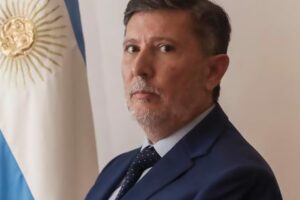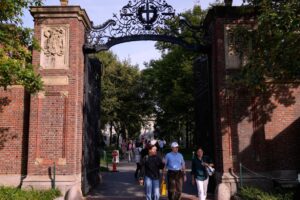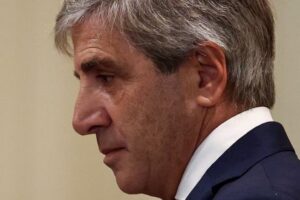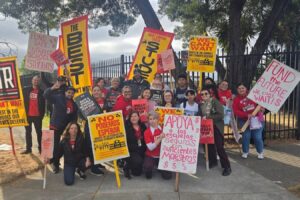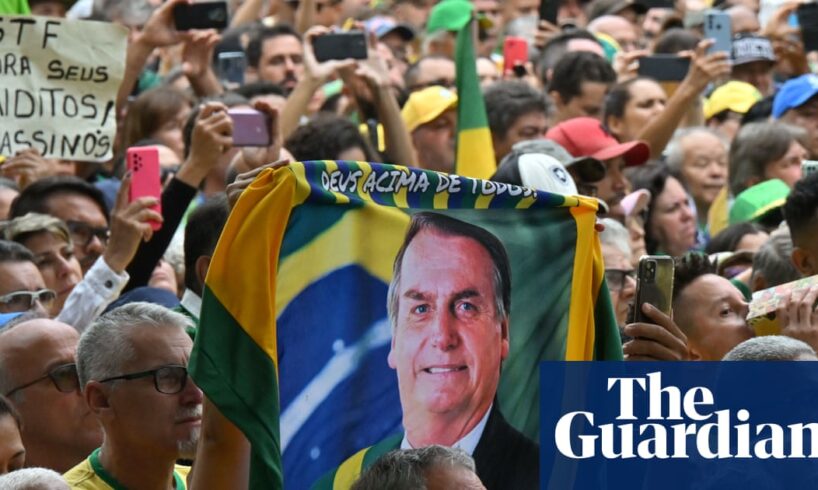
Luiz Inácio Lula da Silva was days away from taking office for his third term as the Brazilian president when soldiers from a special operations unit allegedly discussed the best way to kill him – possibly through poisoning or administering drugs that would trigger “organ failure”.
Investigators would later conclude that the supposed plan to assassinate the president-elect, his vice-president and a supreme court justice was one of many strands of a wider plot designed to keep the far-right leader Jair Bolsonaro in power.
At the end of 2022, Lula had just won the elections and was staying at a hotel in the capital, Brasília, while a police officer leaked details of his security apparatus to the special ops.
Meanwhile, Justice Alexandre de Moraes, already responsible for the main cases against Bolsonaro, was allegedly targeted by heavily armed soldiers who took up positions near his home, awaiting the final order to kill him.
Luiz Inácio Lula da Silva in Brasília on 28 August 2025. Photograph: Evaristo Sa/AFP via Getty Images
According to the federal police and Brazil’s attorney general, the assassination plan was only aborted because a court session was delayed – and, more importantly, the commanders of the armed forces refused to endorse Bolsonaro’s coup plot.
The former president and seven of his closest allies – including high-ranking military officers – are now awaiting judgment on charges of attempting a coup to overturn the 2022 elections. They could face sentences of 43 years.
A verdict is expected next week, and Bolsonaro’s conviction is considered highly likely.
“There has been an attempt at a coup d’état against the institutions of democracy, in pursuit of a dictatorship,” said Moraes at the trial’s opening. “But the institutions have shown their strength and resilience,” he added.
Bolsonaro, who is under house arrest on charges of attempting to coerce judges, denies all the accusations. Suffering from bouts of hiccups and vomiting, he did not request permission to attend the trial in court.
Paulo Gonet, the attorney general, wrote in his final pre-trial arguments that “Bolsonaro is the leader of the criminal organisation” that attempted the coup, “as the chief strategist, main beneficiary and author of the gravest acts aimed at breaking the democratic rule of law”.
Investigators say the plan began even before the election, with an attempt to discredit Brazil’s electronic voting system.
Justice Alexandre de Moraes attends the trial in Brasília on 3 September 2025. Photograph: André Borges/EPA
They believe Bolsonaro aimed to win at the ballot box – at any cost, including through an unprecedented package of bonuses widely seen as indirect vote-buying – but, if that did not work, to claim the election had been stolen.
The first round came, and Bolsonaro lost. On the day of the runoff, the federal highway police, under Bolsonaro’s security minister, carried out operations close to cities where Lula had performed strongly, in what investigators say was an effort to suppress voter turnout.
In the tightest result in Brazilian electoral history, Lula won by 50.9% to 49.1%.
According to the attorney general, this marked the next phase of the attempted coup, when, while refusing to acknowledge his electoral defeat, Bolsonaro and his allies reportedly began devising ways to cling to power.
In what was apparently a scattergun attempt to see what might stick, the plan involved multiple fronts, including the alleged murderous plot – found on a Word document on a device belonging Gen Mario Fernandes, the president’s deputy chief of staff. In testimony he said it was merely a “scenario study” that he had written up.
Bolsonaro is also alleged to have attended meetings in which he discussed issuing decrees to enable him to cling on to power. In testimony last June, the former paratrooper admitted joining discussions on “alternative ways” to remain in office, but argued they did not amount to an attempted coup.
In his opening statement last Tuesday, Gonet said: “When the president and the defence minister summon the military leadership to present a document formalising a coup d’état, the criminal process is already under way.”
While Bolsonaro discussed his “alternative ways”, hundreds of Bolsonaro supporters camped outside army buildings across the country, calling for a coup – a movement investigators say was organised by figures such as Fernandes.
Investigators say the coup was only averted because, despite pressure from Bolsonaro, the heads of the army and the air force – refused to join, leaving the then navy chief, Adm Almir Garnier Santos, isolated. He is on trial alongside Bolsonaro.
With all previous initiatives having failed, the soon-to-be former president refused to take part in the handover and instead flew to the US.
A week after Lula was sworn in, thousands of Bolsonaro supporters who had been camped outside the army in Brasília ransacked the presidential palace, congress and supreme court on 8 January. For investigators, it was the culmination of a plan that had been in motion since 2021.
Although police found no direct order from Bolsonaro to the rioters, investigators argue he spent months inciting his supporters, knew the riot would happen and “left the country to avoid a possible arrest and to await the outcome of the coup acts of 8 January”.
Bolsonaro supporters storm the national congress building in Brasília on 8 January 2023. Photograph: Eraldo Peres/AP
Bolsonaro’s defence insists there is “not a single piece of evidence” linking the former president to the riot. On the alleged assassination plot uncovered with his deputy chief of staff, Bolsonaro said in testimony that no such plan had ever been brought to him.
Gabriela Zancaner Bandeira de Mello, a constitutional law professor at São Paulo’s PUC University, said there was “robust” evidence to convict the former president.
She said that claims made by Bolsonaro’s supporters, including Donald Trump, that Bolsonaro is the victim of a “witch-hunt” stem from a misunderstanding of the case.
“Throughout the entire process, Bolsonaro has had full rights to a defence and to due process, and this trial will leave a legacy for Brazil,” she said, adding: “It will show that our democracy, though young, has matured greatly in recent times and that authoritarianism no longer has room to flourish here,” she added.
